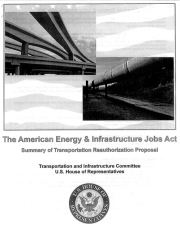
transportation is all about
big pipes and ugly freeway
overpasses right?!).
Once again, national advocacy groups are prepping the cannons for an all out assault on Congress as word spreads that the U.S. House of Representatives is will unveil a new surface transportation bill — dubbed the American Energy and Infrastructure Jobs Act — today.
What do national advocacy groups and other advocates think about it?
“This Is Not a Drill: Highway Lobby Trying to Push Transpo Bill Thru Congress,” reads a headline from Streetsblog DC.
“We expected the bill to be bad news for bicycling and walking, but we didn’t think it would go so far as to reverse all progress we have made in the past twenty years.”
— Deb Hubsmith, Safe Routes to School National Partnership
“It’s so much worse than we thought,” reads an email from the leader of the Safe Routes to School National Partnership, “We expected the bill to be bad news for bicycling and walking, but we didn’t think it would go so far as to reverse all progress we have made in the past twenty years.”
And the League of American Bicyclists says, “This is as urgent as it gets. Even if we do win this amendment, there will be a long road ahead. But if we lose here, we risk losing decades of progress.”
The House Committee on Transportation & Infrastructure, led by Florida Republican John Mica, is slated to unveil their bill at a noon press conference today. An email from their office says the bill will (my translation in parentheses), “reform and streamline transportation programs,” (eliminate ones that aren’t auto and freeway-centric), “cut red tape in the project approval process” (do away with pesky environmental reviews), and “increase states’ flexibility to fund their most critical needs” (stop spending money on biking and walking).
The bill is also going to include provisions that make it easier to drill for oil on U.S. soil, or as Rep. Mica puts it, “remove barriers to domestic energy production.”
Fortunately there’s an expectation that an amendment will be put forward by House T & I committee member Tom Petri (R-WI).

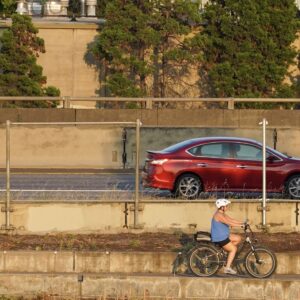
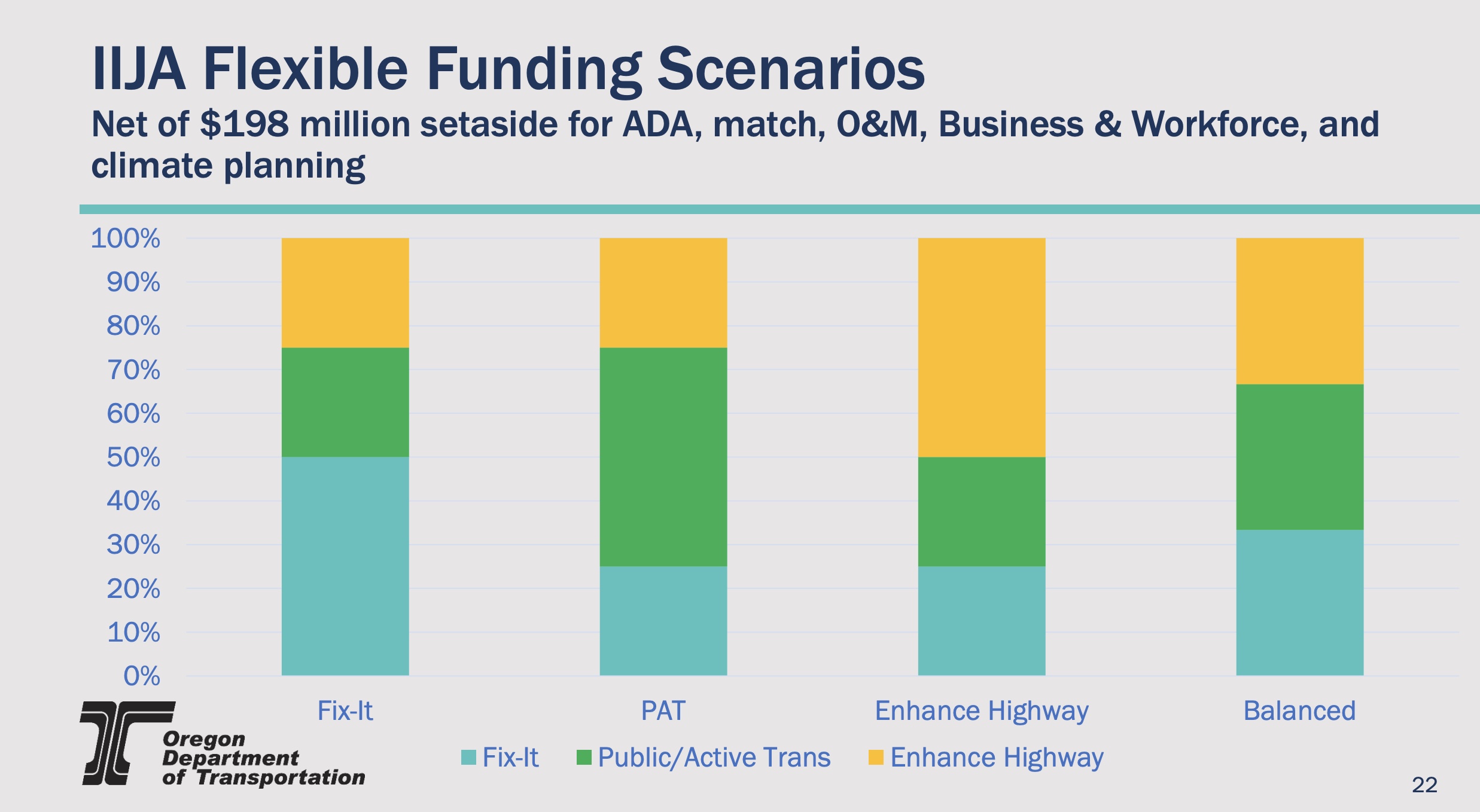
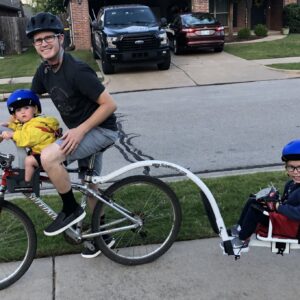
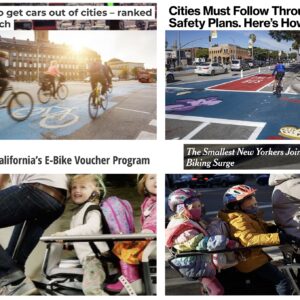
Can someone answer me this question …. if advocacy groups, cities, etc. had nearly unlimited funds to complete and maintain their bicycling and pedestrian projects, without having to depend on federal dollars, would such a scenario be enough so that we do not have to worry about these issues anymore?
If the answer is yes, then I’m going enjoy my bike ride today.
Anon,
this is certainly a funding fight, and as such, the availability of unlimited funding would render the concern moot.
That said, it is also emblematic of the role non-car transportation plays in the american political arena. The feds don’t take it seriously, the suburbs don’t take it seriously, and most of the time, people in cities don’t take it seriously. All the money in the world wont help us add great facilities if we are fought tooth and nail at every turn.
Thanks for the reply NF, but I’m not sure I understand. Are you saying that even with all the money in the world, we would not be able to implement a world-class bicycling and pedestrian infrastructure because people don’t think it’s important? If so, then I don’t understand why we need to worry what they think. As long as we have the money to do it ourselves then what’s the problem?
If the answer is no, to my question above, then what are the other issues holding back advocacy groups, cities, etc.?
Not only does this bill, “remove barriers to domestic energy production,” it also removes barriers to domestic energy consumption via single occupancy vehicles. It’s the circle of life! Hasa Diga Eebowai!
This bill is unprecedented. Instead of raising the gas tax, even to keep up with inflation, they are going to reduce all non-auto spending, and pay for highway construction with “increased domestic energy production”. How does that even work? Freaking idiots.
Maybe you mean ‘fracking idiots?’
Hey, hey – let’s not limit ourselves, there are dozens of potentially harmful extractive technologies that could be used, not just fracking. 😉
Would it be appropriate at this time to start planning for the worst? Let’s say we lose this battle – what should we be doing as advocates (advocrats) to provide for bikes and peds in an environment of no funding? I agree that this is a horrible potential outcome, but prudent people work for the best but have contingency plans for the worst.
You can use the LAB website to send a message to your Representative. Let them know this is important to you. Throw in an anecdote about how the presence of bikeways has changed your live and the lives of those around you.
http://www.capwiz.com/lab/issues/alert/?alertid=60927571&PROCESS=Take+Action
Ted Buehler
Here is what I sent to my (‘R’) Representative in SW WA:
Please consider NOT supporting the bill to reauthorize Transportation as proposed in today’s House version.
I am a business person who works locally and internationally on transportation planning and design. The skills and services that have been developed in this region over the last 20 years since ISTEA are vital for the economic survival of our area (through cheaper transportation options for all – youth and old too) and they are bankable.
I have just returned from a year working in the Middle East on designing pedestrian and highway facilities; the governments of Dubai and Abu Dhabi sought out engineers and planners from the NW because of our experience with sustainable/ green transportation (complete streets, etc.). Their investments in sustainable infrastructure have helped bring back US dollars sent over there to buy oil. A car centric transportation authorization bill will continue to erode our unbalanced trade through the importation of more cars, etc.
My work locally has often focused on the expensive costs of rebuilding roadways that were poorly planned 20 to 50 years ago without sidewalks, transit lanes, and safety buffer zones. The current house bill will end up recreating this problem with new facilities without walking and bicycling facilities and higher crash rates. And the cost to then retrofit these inflexible transportation facilities will be dear and not worth the money saved this year or next.
Please let us not return to the days of 20+ years ago when our children often had to bike and walk in the ditch along new roadways.